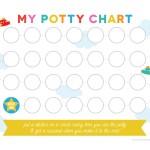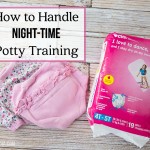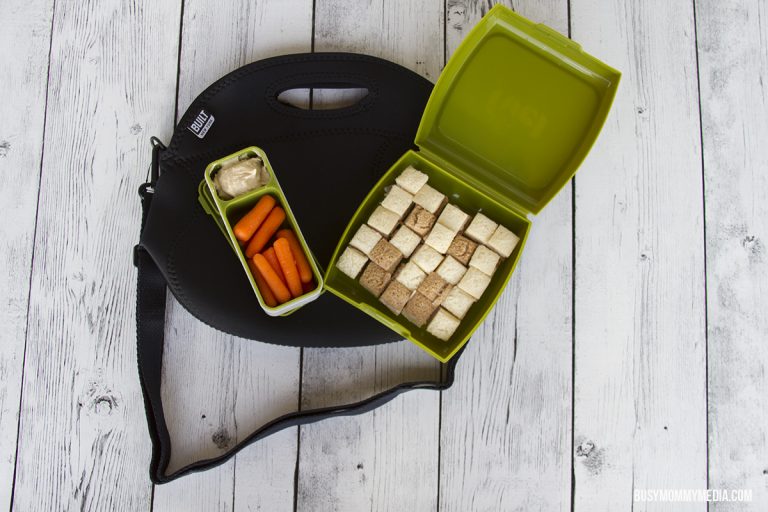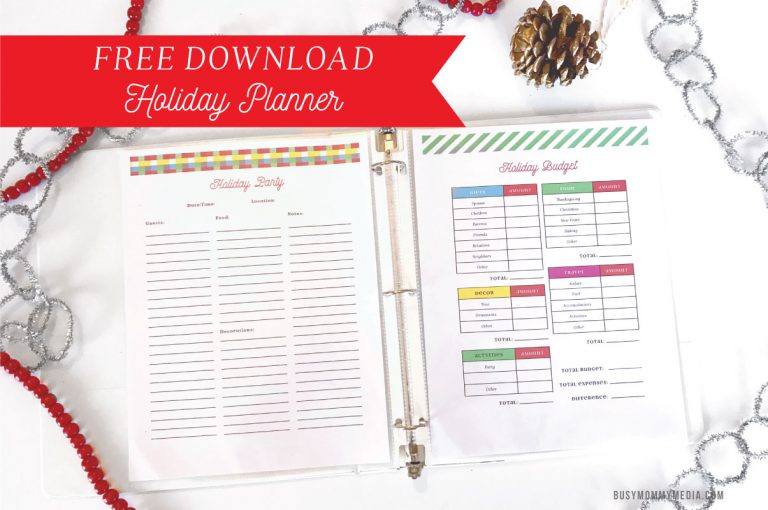What is the “Right” Age to Potty Train?
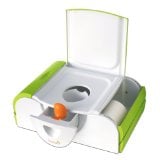 Potty training is a major milestone in the life of a child, and a mom. Everyone from your pediatrician to your next door neighbor has an opinion on when the right time to potty train your child is. Some parents potty train over the course of a 6 month period while others spend a weekend sitting on the bathroom floor giving their toddler a crash course in potty training. Every child is different and despite what well-meaning family and friends may try and tell you, there are no set in stone rules when it comes to potty training.
Potty training is a major milestone in the life of a child, and a mom. Everyone from your pediatrician to your next door neighbor has an opinion on when the right time to potty train your child is. Some parents potty train over the course of a 6 month period while others spend a weekend sitting on the bathroom floor giving their toddler a crash course in potty training. Every child is different and despite what well-meaning family and friends may try and tell you, there are no set in stone rules when it comes to potty training.
Look for Potty Training Readiness Signs
There are some basic signs that a child is ready (or will soon be ready) to potty train but like everything else when it comes to parenting, they follow their own schedule. A 2 year old may show nearly every sign that he is ready to be potty trained while a 4 year old may show only a few. As a parent, it’s up to you to determine when your child is ready to begin potty training.
- Shows interest in the potty
- Can undress and dress independently
- Can stay dry for 2-3 hours at a time
- Wakes up dry in the morning
- Asks for diaper changes
Consider Family Circumstances
Your toddler may be ready to begin potty training the minute he turns 2, but if you are expecting a new baby or moving in the immediate future, that may not be the right time in your child’s life to introduce potty training. When your child begins to show signs that she is ready to start potty training, consider all the events and changes that may be happening in the near future that could simplify or complicate potty training. Hectic times such as family vacations, school holidays for older siblings, and visiting relatives may not be the best time to introduce potty training. Look for an extended period of time in your family schedule where your daily routine will not be interrupted.
Consider your Child’s Needs
Every child is an individual from the moment he takes his first breath and he has individual needs and personality traits that need to be considered when determining the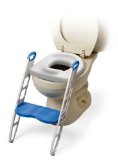 best age to start potty training. A child who has experienced any developmental delays may need more time to adjust to the idea of potty training. Speech delays may make it difficult for a child to communicate when he needs to use the potty, but sign language or other methods of communicating can make it possible to potty train if the child is otherwise ready to be potty trained.
best age to start potty training. A child who has experienced any developmental delays may need more time to adjust to the idea of potty training. Speech delays may make it difficult for a child to communicate when he needs to use the potty, but sign language or other methods of communicating can make it possible to potty train if the child is otherwise ready to be potty trained.
Children with older siblings often begin showing an interest in the potty earlier than oldest children. This does not necessarily mean that they are ready to be potty trained. It just means he wants to emulate his older siblings. As a parent, it’s your job to sort through the evidence and determine if your toddler’s interest shows true potty training readiness.
Don’t Compare your Child to Others
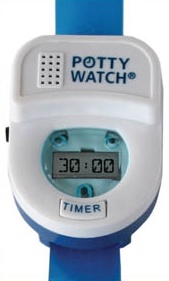 One of my biggest parenting pet peeves is when a parent wants to compare their child’s milestones with mine. “Your child was 3 when he was potty trained? Oh. Well mine was potty trained by 2 ½”.
One of my biggest parenting pet peeves is when a parent wants to compare their child’s milestones with mine. “Your child was 3 when he was potty trained? Oh. Well mine was potty trained by 2 ½”.
There’s plenty of time in life for a child to learn to compare himself with others – why start tearing his self-esteem down early? The age that a child reaches developmental milestones is not a sign that he is destined for early admission to Harvard. I had a child potty train who showed no interest in potty training at all until he neared his 4th birthday but who tested at near genius level. Some children potty train at 18 months (or earlier if you are into elimination communication – personally, I’m not) and some children are still having accidents when they are 5. Don’t read too much into it.
The right age to potty train varies with every child. As a busy mom, it would be nice if everything happened on our own time schedule – it would certainly make planning a lot easier – but when it comes to potty training it’s important to follow your child’s lead.
When was the right time for your child to potty train?
Tools to Help with Potty Training
Potty Watch from Pottytime– This is one of my favorites because it puts your child in control of potty training and works to encourage potty training success.
Kushies Taffeta Training Pant – Blue – I much prefer these to disposable training pants. They are more affordable and encourage faster potty training.
BABYBJÖRN Safe Step – A basic step stool can help a child be independent in the bathroom.
Thomas The Tank Soft Potty Seat, Blue – Potty seats that fit on a regular toilet seat make clean up much easier and simplify the transition to using the full size potty.

